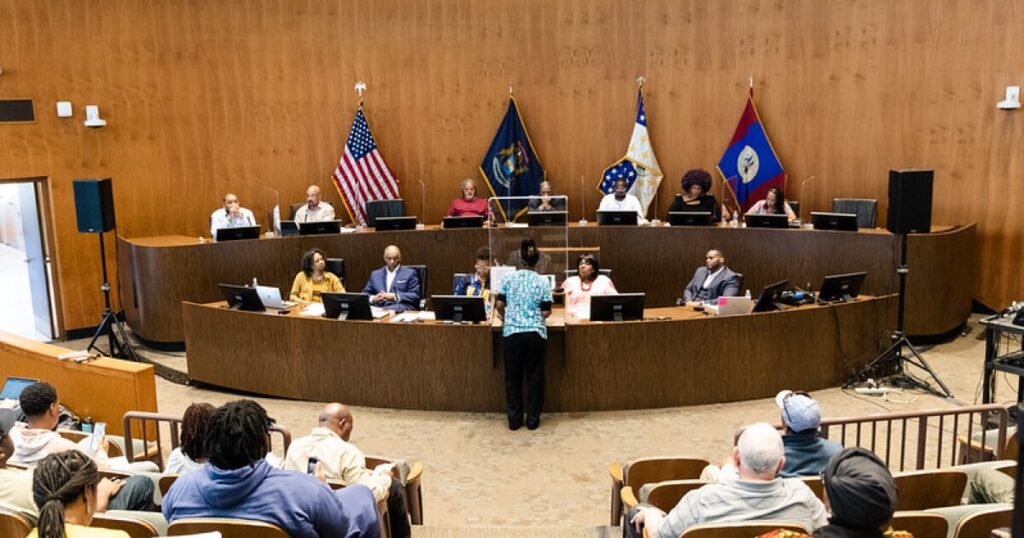Detroit Task Force Proposes Comprehensive Reparations Plans
In a historic move, Detroit’s first Reparations Task Force has presented its comprehensive report to the City Council, outlining a series of proposed measures to address historical injustices faced by African American residents. The task force, established following a 2021 ballot initiative, aims to remedy past harms through a suite of recommendations, including financial compensation and systemic changes in housing, education, and policing.
Key initiatives proposed by the task force include direct cash payments and housing grants for eligible residents, educational reforms centered on African heritage, and reforms in law enforcement. The report, a culmination of extensive research and dialogue, is now available to the public and can be accessed online here.
Eligibility and Formation
To qualify for the reparations programs, individuals must meet three criteria: they must be descendants of enslaved Africans in the U.S. or diaspora, at least 21 years old, and have resided in Detroit for a minimum of 20 years. The 13-member task force, formed in 2023, spent two years developing these recommendations, overcoming numerous challenges and deadline extensions along the way.
Historical Context and Financial Proposals
The task force’s report highlights the “historical atrocities” against African Americans, attributing the wealth of the United States to the exploitation and enslavement of Black labor. Their recommendations span various sectors, some requiring legislative changes at the state level, such as ending police qualified immunity.
Although the financial implications of these reparations are not yet determined, the task force suggests potential revenue streams. These include a downtown entertainment tax, additional casino fees, and a $5 million fund for neighborhood development. Other ideas involve retracting tax incentives from underperforming developers and imposing new fees on city contracts.
Administrative and Legislative Action
The establishment of a reparations administrative office is recommended to oversee the implementation and accountability of these programs. This office would be managed by an independent board of residents, tasked with administering payments and programs.
The City Council holds the authority to act on these recommendations, and the task force’s role concluded on October 31. However, further public discussions may occur if the council extends the task force’s mandate.
Impact on Local Policy and Community
Championed by Mayor-elect Mary Sheffield, the initiative builds on decades of advocacy, acknowledging past reparations provided to other groups, such as Japanese Americans and Holocaust survivors. The report critiques the city’s historical policies, which have favored corporate interests over neighborhood welfare, and calls for a reallocation of resources to support traditional communities.
Sector-Specific Recommendations
Housing: Proposed measures include distributing housing grants, building affordable housing units, and implementing rent control policies. The task force also seeks to refund overcharged residents and halt the transfer of city-owned land to the Detroit Land Bank Authority.
Economic Development: Recommendations suggest grants for businesses displaced by urban renewal and incentives for African American-owned enterprises. The report advocates for training programs and the establishment of tax increment financing zones.
Policing and Law Enforcement: To address police misconduct, the task force suggests ending qualified immunity, terminating “high-risk” officers, and hiring more Black residents in law enforcement roles.
Water and Sewerage: The task force calls for a moratorium on water shutoffs and a renegotiation of service agreements to address inequitable cost-sharing.
Education: Recommendations include reparations grants for education, lobbying for state funding, and promoting African-centered learning.
Quality of Life: Goals include enhancing food access, establishing environmental reparations zones, and reducing asthma-related hospital visits through improved air quality initiatives.
Cultural Institutions: The task force proposes creating an Office of African American Cultural Programs to support arts and historic preservation.
This story was originally published by BridgeDetroit and distributed through a partnership with The Associated Press.
—
Read More Michigan News










